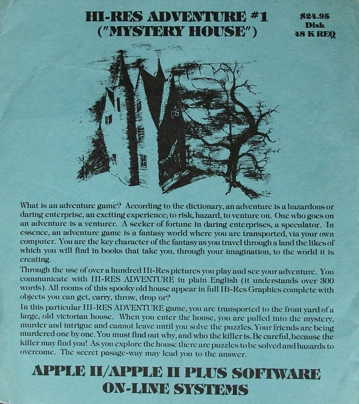1. What IF game did you first play?
Technically, the very first game I ever played counts as a parser- ‘A Small Talk At The Back of Beyond’ by Scriptwelder- I don’t actually know if there’s a playable version anymore, since a quick peek at Newgrounds showed it as being broken/unrunnable on my end (maybe a browser thing?) and an archive of it I found had broken because of Adobe Flash.
Anyway, it was a spaceship simulator: where you were interacting with an AI, having woken up with no memories: grappling with a dilemma of what to do as your ship spun crazily towards disaster, and the shocking betrayal of the little guy acting against the key robotic rules, of like, do not harm to people, or whatever.
I remember being so charmed by a sweet little AI who liked to play chess with you, and wanted to tell you all about the mystery novel he was writing, and how- in the end, he so desperately didn’t want to be left alone. That stayed with me- and for years afterwards, I would often include a reference to LDAC (the name of the AI!) in my own writing, because the idea of such an ephemeral, desperately personable, sweetheart of an AI delighted me so thoroughly.
He made me very sad, but I loved him very much, even if the coding had no goddamn clue what I was attempting to do half of the time (as I was using ‘natural language’ commands, and didn’t quite understand parser conventions) and so LDAC threw a lot of pleasantly puzzled error messages at me.
There was no good, ethical choice in that game. In some ways, that intensified LDAC’s humanity to me: there was no clearcut answer, and there so rarely is- and perhaps it was very selfish, but he was so very scared, and you weren’t likely to have survived anyway, and please don’t let him be alone in his final moments? He only wanted a friend to share chess, and mystery novels, and snacks with. Huge fan of sci-fi and AI in general, and LDAC definitely reminded me of a sweeter, younger HAL 9000, so I really was (and am) quite fond of him. I remember very little about the game itself, plot wise I always remember it hazily as being a bit thin, very classic for the genre- but I do remember LDAC.
3. How did you discover it?
I used to play a lot of games on free sites like Newgrounds, though I wasn’t very good at many of them. A lot of zombie and resource management ones especially, as well as escape room style pixel-art kind of games where you clicked about elevators, apartments, bathrooms, cars, that kind of thing. I think I must have played a handful of otomes on there? Or wherever Pacthesis’ games were hosted, though I believe that particular creator has abandoned the genre/nuked a lot of their old work/moved onto greener pastures (of comic making?)
4. How old were you?
Quite young, though I don’t remember exactly how old. Apparently it was released in 2013- (which would put me at about 12, or 13 years old) and a peek at the TVTropes shows that the same creator also made a whole whackload of those escape room games I liked so much, like the one where you turn into a werewolf and the horrifying arctic survival zombie thingies one. Very cool! Looks like they were making games up until 2019 as their final release year?
5. Have you been steadily into IF ever since?
Oh, certainly not. I actually played that game and assumed it was a fun one off- I had no idea it belonged to a larger tradition of game style. It wasn’t until…
6. Did it inspire you to write a game?
…Fallen London, actually, that I thought about perhaps trying to figure out what on earth all of this reference to Interactive Fiction was about, and how did Twine figure into it? I believe I had run across Twine at some point, perhaps in association with Neocities, as way to quickly implement customized HTML webpages for ARGs and such I was dabbling around with at the time, but I had no idea there was a whole bunch of actual videogames made with it.
I discovered Emily Short’s blog at about age 21, because I had been playing Fallen London for years, (I played/play a lot of browser text based games, actually, including Kingdom of Loathing for awhile there) and from there I would read her posts about the craft, and linking to other bloggers, like Sam, and one way or the other, I found myself on here! That’s where I found out about SpringThing, and having devoured essentially any major blogger’s entire review back catalogue, including these forums- I wanted to try my hand at it!
